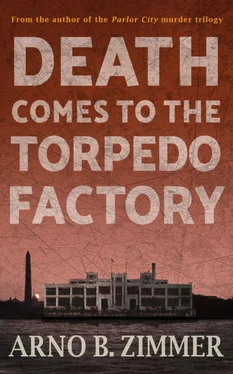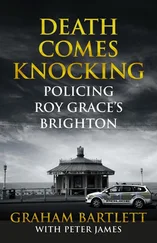Bellows had not been invited to sit down and he started to rock slightly on his heels waiting for any further instructions for that evening’s call. “Well, I’ll be going then if there’s nothing else. Can I assume that you want me to call you tonight, no matter how late?” Helga harrumphed which Bellows took as a yes and turned to leave when she spoke again.
“Wait. I have been meaning to ask you something for some time now. When you initially went through the file containing the missing photographs, did you discover any other documents pertaining to the Dumont family, let’s say of a similarly delicate nature?”
Bellows’ back was turned to Helga which gave him a moment to recover from the shock of her question. When he turned around, he calmly said, “Nothing at all pertaining to the Dumonts, I can assure you. The file has been sealed and is now in a secure storage vault. My assumption is that once the photographs are recovered, you will decide what to do with them.”
On the drive home, Bellows thought he had cleverly parried Helga’s parting thrust. She had asked specifically about the Dumont family and he had answered truthfully. From the very beginning, he had deceived her about the file but felt justified since most of the contents had been destroyed after he brought them back piecemeal to his apartment. Of course, had she asked about her own family, he would have lied about the war criminal’s list in the bottom drawer of his desk. Helga Dumont had not earned the right to know everything that Addison Bellows did.

WHILE BELLOWS WAS standing before Helga, Siegfried searched his apartment for the second time that day. He looked behind all the ornate picture frames, checked under the carpets for loose boards, poked around in the freezer and even lifted the cover to the toilet tank. If the photographs were in Bellows’ apartment, he had taken more care to hide them than he had the list from the war commission. Siegfried knew that it would be easy to conclude that Bellows had the photographs and was playing a double game as Scatcherd’s and Meacham’s partner. However, his years as a Commando had inexorably altered how he looked at everything in life. Not every enigma meant there was a conspiracy. From what he had heard of Bellows and seen of Meacham, he didn’t think either of them had the stomach for such a treacherous game.
When Siegfried called Helga, she related her conversation with Bellows regarding plans for the pay-off to the bartender. When he heard Bellows’ response to Helga’s parting question, he still leaned in favor of his original theory that the archivist was acting in good faith regarding the photographs but that he had retained the United Nations list as his “insurance policy.”
Siegfried said nothing to Helga about his lingering suspicions regarding Bellows. He suggested that Meacham would likely accept the initial offer but promised her that the bartender would not have the money for long. “All I care about are the photographs, Siegfried. Whatever you decide to do with the bartender, I don’t need to know. As for the extortion money, if you recover it, I hope you will keep it for all your trouble.” Siegfried picked up the unctuous, pleading undertone in her voice and quickly changed the subject. “I will be out for a while. Call the number in New York and leave me a message after you get an update from Bellows. I will call you back as soon as possible.”
Siegfried was annoyed by Helga’s persistent efforts to inextricably bind them together – as if Barrington wasn’t enough. Taking the $250,000 was tantamount to letting her place a claim on him. It was a crude, clumsy attempt and he was insulted. If she persisted, he might be forced to declare bluntly that his sole purpose in coming to her aid was to protect their son.
As for Bellows, Siegfried concluded that he had lied to Helga about the list and therefore could not be trusted – even if the photographs were recovered, which now seemed likely but by no means certain. As he had been taught when he was first chosen for the Brandenburg Commandos, it could be fatal to a mission if you did not tidy up loose ends.
WHEN WILLOUGHBY SHOWED up at the bar, Woody and Pudge were on pins and needles until the detective said, “We’re good to go. This is no place to conspire – let’s get out of here.”
On the drive to Pudge’s house, Willoughby asked, “Anything to eat at your place, Pudge?” The Irishman blinked, looked out the window and instructed Willoughby to turn right on North Washington Street. “Pull in here, Hank. Hope you guys have strong stomachs tonight.” They had turned into the parking lot of the Little Tavern, a burger joint popular as a late-night eatery after the bars closed. As Pudge jumped out, Willoughby yelled, “Better get two bags.” The Little Tavern looked like a miniature cottage plucked out of a fairy tale, alluring enough to have enticed Hansel and Gretel to walk in. It had a bright green slate roof and a neon sign that instructed customers to “Buy’em By The Bag”.
In a few minutes, Pudge was back outside carrying two white bags. Willoughby laughed and Woody looked puzzled when Pudge got into the car and hoisted the bags like trophies. “Two dozen of the most dangerous little cheeseburgers you’ll ever want to meet. Fresh from the steamer. We’ll be belching all night.” If there was any tension in the air about the upcoming call to Bellows, Pudge had just sliced through it.
WHEN THEY PULLED up to Pudge’s house, there was an unmarked police sedan in the driveway and the lights were on. Pudge frowned and Willoughby explained, “I gave your keys to the technical boys. They’re setting up the recording device and installing a few extension phones. Woody will be doing the talking but all three of us will be listening to everything that is said. We’ll have a quality recording but I still want everyone’s impressions on how Bellows sounds. We’ll compare notes afterwards. Questions?” “Yeah,” said Pudge, “do we have to share the burgers?”
When they walked in, the technicians were packing up their gear and gave Willoughby a thumbs up. Pudge pretended to resist as Willoughby took one of the bags and held it up in front of the technicians. The detective grinned and said, “Thanks, boys. Little Tavern – enjoy the ride home.”
Pudge looked past the PBRs in the refrigerator and found three cans of soda. As they sat at the kitchen table, the miniature cheeseburgers on tiny dinner rolls disappeared from the white bag and no one was talking until Willoughby suppressed a burp, wiped his mouth and mustache with a napkin and began. “Woody, this will be your show but like any good performance, the rehearsal’s the key to successful execution. There are some things I want you to say and a few questions to ask. We can write them down now or I can prompt you as we go along.”
“I’ll look to you for guidance, detective, but would prefer to be able to glance at them on paper. Less chance for a screw up.” Woody took a bite of his third miniature cheeseburger and then stopped. When he started to peel back the top of the roll to look inside, Pudge waived him off. Still chomping away, the Irishman managed to laugh and say, “Just eat’em, kid. Don’t spoil the mystery.”
BELLOWS ANSWERED HIS phone at 8:00 sharp. His tone was polite and deferential, as if Helga Dumont would be listening in and would be grading his performance. He recognized Woody Meacham’s voice abruptly ask, “Are you going to make an offer? Let’s not waste time.” Willoughby had emphasized to Woody that it was critical that he take charge immediately, keeping Bellows off-balance and reactive.
Читать дальше













